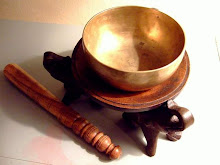
“A man who values individuals above his own integrity is a wretch, not a free thinker.” – Steve Pavlina
I didn’t know that George Washington was a swindler before turning into a great and altruistic leader.
For most of his life, as Chi-ning Chu wrote in her book Do Less, Achieve More, Washington struggled to gain status and wealth by any means, selfish and at times dishonorable. His many character defects left him with a low reputation among fellow generals of the wannabe republic.
Yet we see his image on dollar bills today, long after he has died. His legacy in helping to found the USA is unparalleled. He became an icon who lives on until today. How could this happen?
Chu explained that the metamorphosis came after destiny caught up with him and his situation had become “so hopeless and desperate that Washington had to consider the possibility of running out west to hide”. He wrote to his brother “I think the game is pretty near over.” At that point, he acknowledged defeat, turned inside and realized the burden of his vanity.
In his dark night of despair, he was able to relinquish all the symbols of status he had collected over the years through personal effort, and he discovered the true meaning of honor and recognition. Chu pointed out that this was the moment that he “merged with his destiny to become the Father of the Nation.”
It turned out that the great hero Washington had “as many human flaws and carried as much emotional baggage as anyone else”. Even more than some, from what I read. The remarkable lesson is that by surrendering to his fate, he discovered and learned about the true nature of his situation and defects. Through that dark night, he evolved into “a heroic man of destiny” in Chu’s words.
I was touched by Chu’s explanation that desperation is a necessary step before surrendering to “Heaven’s will”, as she put it. Despair can bring us to a point where we learn to detach, to acknowledge a state of “I don’t care so much” after all. At that point, a door opens magically to a life of thriving rather than surviving.
After turning inward and surrendering and admitting defeat, Chu said that we can embrace our true destiny. We no longer need to win on a personal basis, as Washington discovered, and this became the turning point for success to come with unexpected grace.
I remember that my history teacher in high school liked to quote the Dutch reverend Ferdinand Domela Nieuwenhuis who said in 1885 that when the churches were made of wood, christians were made of gold, and when the churches were made of gold, christianity became wooden. It was the quality and integrity of the people that mattered most.
In Eastern traditions, great teachers have long reflected that the lotus flower, that supreme symbol of human evolution, doesn’t grow in a nice pot but straight from the mud below. Deep inside that yucky mud something special happens that fertilizes growth and spouts beauty and achievement.
To become a rainmaker like the great George Washington, anyone could make a good start by realizing that he wasn’t so great to begin with―in fact he was a rather poor role model―but that he fell into the mud where the integrity was forged that inspired his leadership and legacy.
What an extraordinary story for someone with so many character defects and ill-gotten wealth to become such a great and respected leader. If that could happen to him, it seems that no one should feel excused from embracing their own grand destiny of helping themselves and those around them.
It can all start with a mud bath.
Photograph: Scaled human sculpture by Ah Xian.




